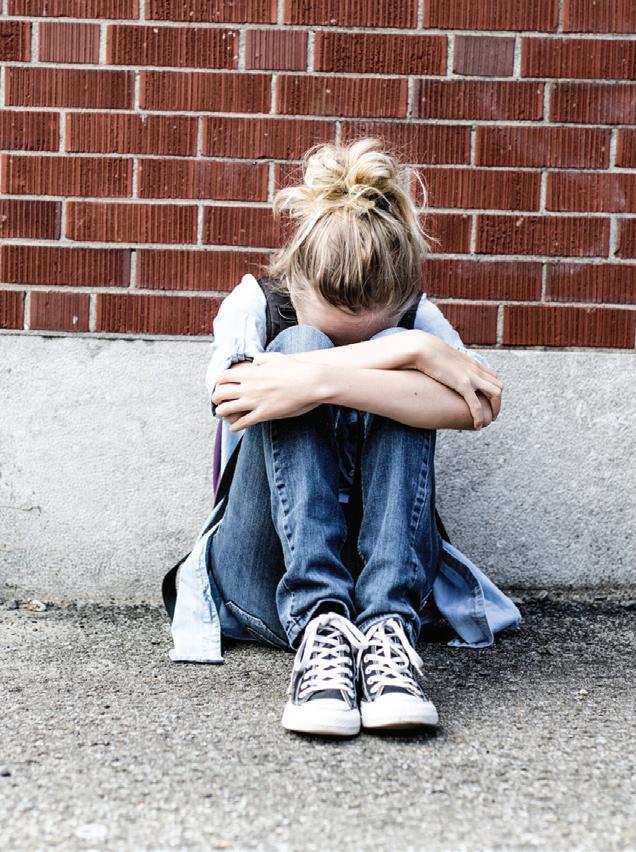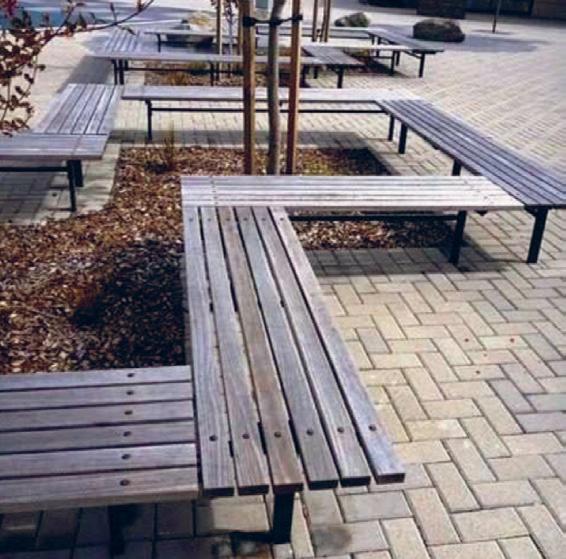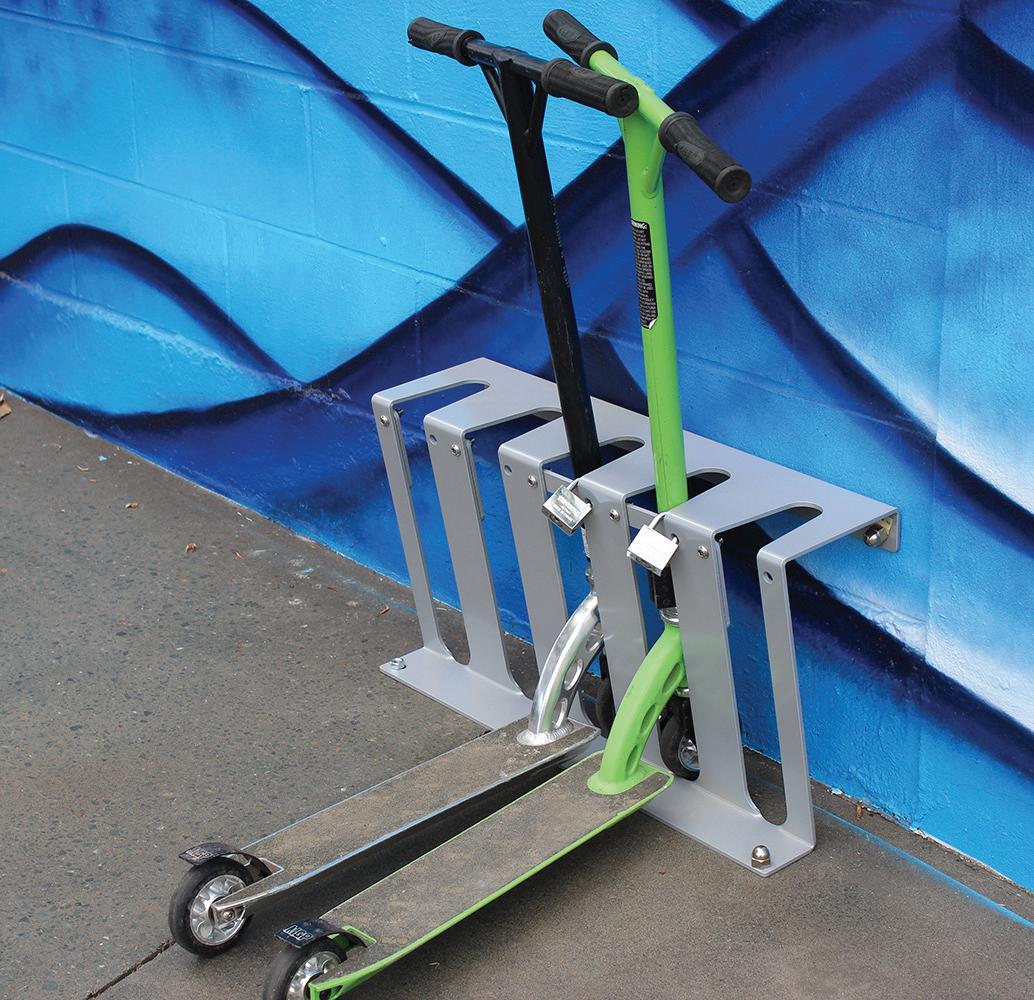
5 minute read
SCRATCHING THE SURFACE
One third of New Zealand principals see bullying among their students at least weekly, that’s according to News Hub and an Organisation for Economic Co-operation and Development (OECD) report completed in 2019.
Thirty-five per cent of secondary principals also reported regular acts of intimidation or bullying, more than double the OECD average of 14 per cent as stated on Stuff in 2019.
While alarming statistics, many New Zealand principals are aware that bullying happens in all schools and are taking their own measures to try and eliminate the problem. Pink Shirt Day recently celebrated in May and run by the Mental Health Foundation is an organisation that brings awareness to bullying by highlighting the importance of kindness, inclusivity and diversity among schools, the workplace and the community. Now celebrated annually around the globe, Pink Shirt Day started in Canada in 2007 when two students took a stand against homophobic bullying after one of their peers was bullied for wearing a pink shirt.
What counts as bullying?
• Bullying is intentional – hurting another person on purpose • Abuse of power and control • Bullying usually happens consistently and can often cause a lot of harm to others.
Because of Pink Shirt Day donations, the organisation has reached more than 2,000 schools and kura nationwide each year to share messages and classroom activities that help to prevent bullying. While Burnside High School principal Phil Holstein believes Pink Shirt Day helps to bring attention to the problem of bullying, he feels more could be done in schools to have a long-term impact. “I am very supportive of Pink Shirt Day as it puts a schoolwide focus on the issue of bullying but sadly its impact is often short-lived and we have to make good behaviour an everyday habit, this is an ongoing challenge for us all.” At Burnside High School Phil puts an emphasis on creating a culture of inclusiveness that is safe for everyone where people treat each other with respect, kindness and there is a culture of care. “We promote our school values in everything we do, Burnside is a large community (of around 2,750 students and staff) and to operate successfully it is important that we all try to model and live those values every day. We work hard to identify and deal with students whose behaviour does not reflect our values.
The school supports students to speak up if they experience bullying or see bullying of other students. “The biggest thing for us is to have an environment where students feel comfortable to inform the pastoral team, if they are experiencing bullying, we want to know so that we can follow it up.” “Every year we have a Year 13 ‘SpeakUp Anti-Bullying Group’ where students promote anti-bullying in assemblies, with events, through online platforms and Pink Shirt Day. “This year they are extending their work further by training as peer mediators, once trained they will work with students with low-level issues and will facilitate specialist support as and when needed.
While he believes that the majority of students at Burnside do not consider bullying as an acceptable behaviour, he feels that there is still a long way to go to deal with the problem at hand.
Why do some people bully others?
• They are unhappy • They have been bullied themselves • They want to be intimidating or feel powerful • They aren’t aware of how their actions hurt others • They believe being different from the crowd is a bad thing
“Sadly, human nature is a powerful force and young people tend to mirror the way they see people treated. “Our aim is for all students to be engaged, have a sense of belonging and feel valued, respected and connected to their school, when this happens bullying behaviours are minimised.”
BEFORE-SCHOOL CARE AFTER-SCHOOL CARE HOLIDAY PROGRAMMES
THE LARGEST
NZ OWNED
OUT-OF-SCHOOL CARE PROVIDER
Is it time for a change?

Affiliated with

Why have over 60 schools in New Zealand chosen Kelly Club?

Revenue-share model
We’re not just a hall renter. We share our revenue with your school.
Quality care you can trust
Our programmes are approved by the Ministry of Social Development and our nutritious, yummy food complies with the safety requirements of the Food Act 2014.
Childcare subsidies
Eligible parents or caregivers can access WINZ subsidies to help cover the cost of our programmes.
Parents love our flexible bookings
Parents appreciate our same-day booking and cancellation without penalty, so they only pay for the childcare they use.
We make out-of-school care easy and hassle-free










Fel Street Furniture has been a supplier for New Zealand schools for over 25 years.
Our extensive range of standard products provides a budget conscious solution without sacrificing on attractive visual design. Alternatively you can choose to have us custom design your outdoor furniture to fit with your specific school design and environmental requirements. The majority of our street furniture products are manufactured from high quality materials at our Auckland manufacturing plant. Our proven reputation for high quality products allows us to offer workmanship guarantees of up to 10 years for many of our street furniture NZ products.










